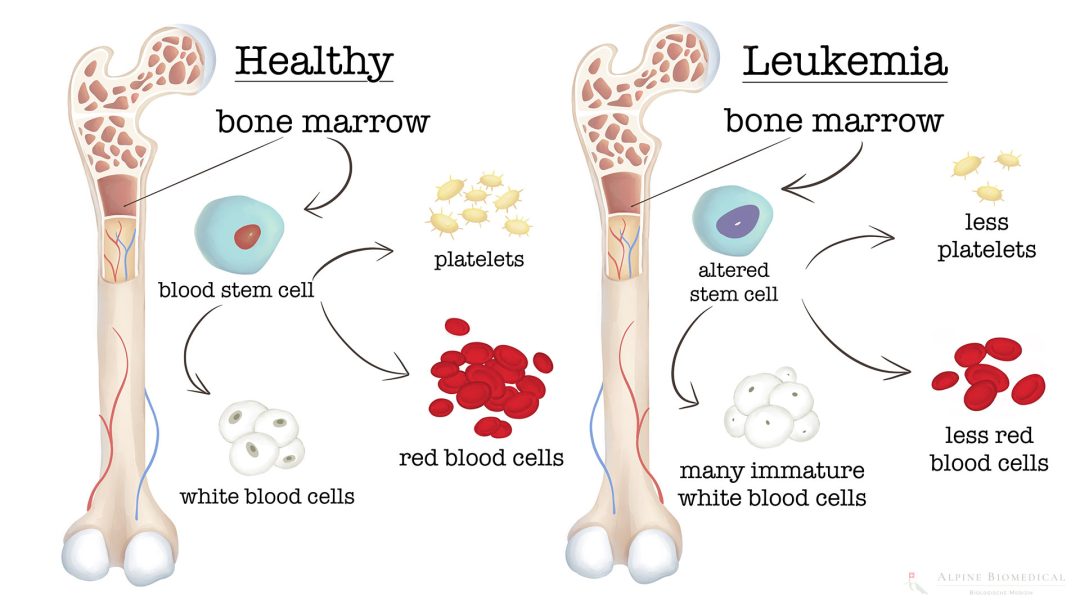Leukemia

Leukemia, also known as blood cancer, is a malignant disease of the hematopoietic system. Excessively immature blood cells multiply in the bone marrow and bloodstream and replace the healthy blood cells. There are various types of leukemia, which differ greatly in terms of treatment approaches. As a rule, an increase in white blood cells is detectable in leukemia.
Symptoms of Leukemia
In most cases, the symptoms of leukemia are non-specific. The possible symptoms include:
- Fatigue and weakness
- Pale skin
- Susceptibility to infections
- Unwanted weight loss
- Fever
- Anemia and bleeding tendency
Anemia due to a lack of healthy erythrocytes and an increased tendency to bleed due to a lack of platelets are typical.
Causes of Leukemia
The causes of leukemia are partly uncertain. However, the following risk factors are known:
- Toxic exposure to various chemical substances
- Various types of radiation
- Infections, such as with EBV
- Smoking
- Genetic factors
Diagnosis and Treatment of Leukemia
As a rule, a blood test in combination with the clinical picture enables a diagnosis to be made. Special laboratory diagnostic tests can provide information on the effectiveness of various conventional and complementary medical agents against the respective type of cancer. On this basis, a targeted and customized therapy can be given.
Conventional medical therapy varies depending on the type and stage of leukemia. It can include chemotherapy, radiotherapy or bone marrow transplants.
Holistic medicine focuses on the use of natural anti-cancer agents, the optimization of bodily functions, the replenishment of necessary micronutrients and bodily detoxification.
Med. pract. Dana Hreus M.A.
The treatment of leukemia is made easier and more effective if an individually tailored cancer diagnosis is carried out before the start of therapy.

Further information
The information listed contains relevant topics and serves to improve understanding.